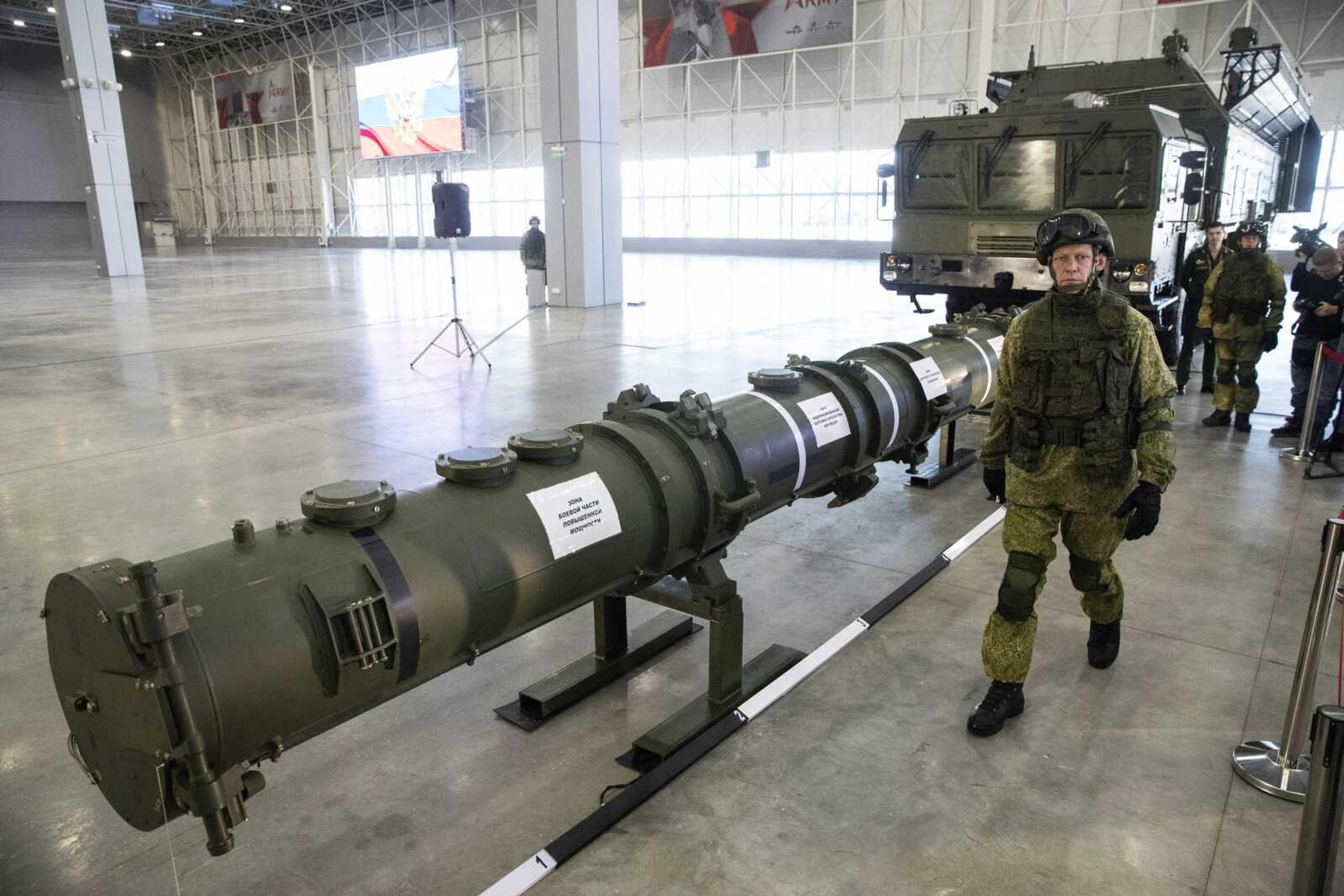U.S. leaves Russian arms treaty
WASHINGTON -- With the scrapping of a landmark arms control agreement Friday, the U.S. announced plans to test a new missile amid growing concerns about emerging threats and new weapons. U.S. officials said they are no longer hamstrung and could now develop weapons systems previously banned under the Intermediate-range Nuclear Forces treaty with Russia, a Cold War-era agreement the sides repeatedly accused the other of violating. ...
WASHINGTON -- With the scrapping of a landmark arms control agreement Friday, the U.S. announced plans to test a new missile amid growing concerns about emerging threats and new weapons.
U.S. officials said they are no longer hamstrung and could now develop weapons systems previously banned under the Intermediate-range Nuclear Forces treaty with Russia, a Cold War-era agreement the sides repeatedly accused the other of violating. The treaty was also criticized because it did not cover China or missile technology not existing a generation ago.
The end of the treaty comes amid rising doubts about whether the two countries will extend an agreement on long-range nuclear weapons scheduled to expire in 2021. President Donald Trump said he has been discussing a new agreement to reduce nuclear weapons with China and Russia.
"And I will tell you China was very, very excited about talking about it, and so was Russia," Trump told reporters. "So I think we'll have a deal at some point."
The Trump administration, which gave its six-month notice Feb. 2 of its pending withdrawal from the INF, had repeatedly said Russia was violating its provisions, an accusation President Barack Obama made as well.
"The United States will not remain party to a treaty that is deliberately violated by Russia," Secretary of State Mike Pompeo said in announcing the formal withdrawal, calling a Russian missile system prohibited under the agreement a "direct threat to the United States and our allies."
The end of the INF, which comes as world powers seek to contain the nuclear threat from Iran and North Korea, is another milestone in the deterioration of relations between the U.S and Russia.
"The denunciation of the INF treaty confirms that the U.S. has embarked on destroying all international agreements that do not suit them for one reason or another," the Russian Foreign Ministry said in a statement. "This leads to the actual dismantling of the existing arms control system."
A senior administration official downplayed the upcoming U.S. weapons test, saying it was not meant to be a provocation. The official, who was not authorized to publicly discuss the test flight, said the U.S. is "years away" from effectively deploying weapons previously banned under the agreement.
But the U.S. might eventually want to base such weapons in Europe as a counterbalance to Russia, or in Asia to counter China.
The central issue with the INF was Russia and the U.S. had long accused the other of cheating on the treaty, which banned land-based missiles of ranges between 310 and 3,410 miles.
The U.S. said the noncompliant missile systems the Russians fielded gave Moscow an advantage over NATO forces in Europe.
The Obama administration in 2014 accused Moscow of violating the INF by testing a treaty-busting cruise missile, and the Trump administration pressed the accusation. Russia denies it has cheated and counters with a contention America's armed drones and missile defense system in Europe are violations.
U.S. military officials have said 95% of China's ballistic and cruise missiles would have violated the treaty.
"Since the strategic environment has changed rapidly since the end of the Cold War, we need to find ways to use arms control to address the rise of China's nuclear arsenal, the increase of Russia's non-strategic weapons stockpiles, and the emergence of new technologies like hypersonic weapons," said Texas Rep. Michael McCaul, the top Republican on the House Foreign Affairs Committee.
Chinese U.N. Ambassador Zhang Jun on Friday challenged what he said were efforts to make his country "an excuse" for the demise of the treaty: "You know, the United States is saying China should be a party in this disarmament agreement, but I think everybody knows that China is not at the same level with the United States and the Russian Federation."
The point of arms control is to limit or stop a competition in weapons that, if left unconstrained, could endanger not just the big powers but much of the rest of the world. Nuclear weapons are the clearest example of this, but advances in technology, the rise of China and the spread of nuclear capabilities to smaller countries such as North Korea have complicated the problem.
Connect with the Southeast Missourian Newsroom:
For corrections to this story or other insights for the editor, click here. To submit a letter to the editor, click here. To learn about the Southeast Missourian’s AI Policy, click here.










